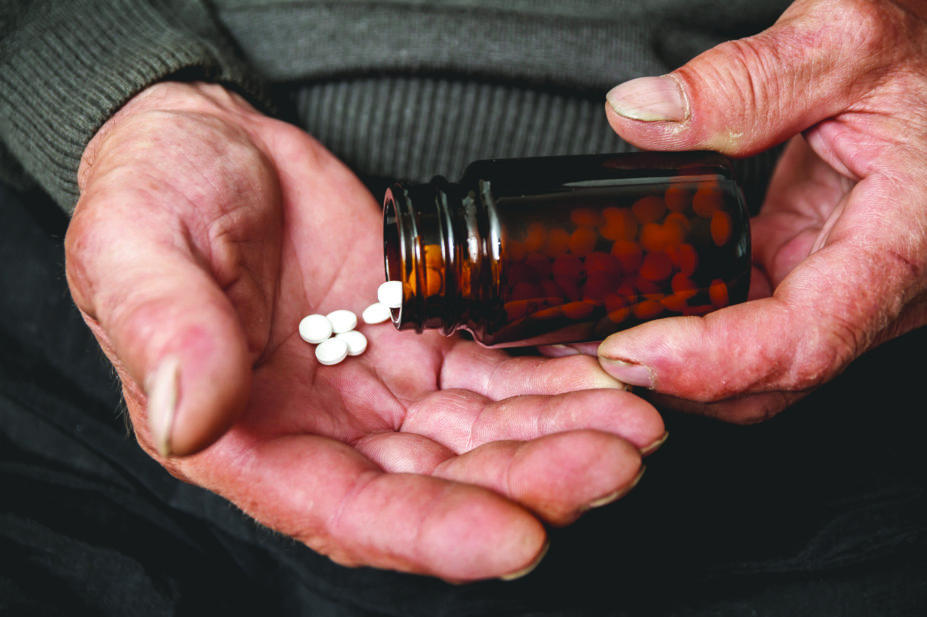
Shutterstock.com
Older patients are often being ‘poisoned’ because licensed doses of drugs are only tested in younger, healthy populations, witnesses have told a House of Lords Science and Technology Committee inquiry.
Speaking at the committee’s Ageing: Science, Technology and Healthy Living inquiry on 29 October 2019, Munir Pirmohamed, professor of molecular and clinical pharmacology at the University of Liverpool, said: “If you look at the general population coming into hospital, 6.5% of all people coming into hospitals are admitted because of adverse drug reactions (ADRs), 15% develop ADRs while in hospital … at this very moment in time 8,000 beds are occupied by patients with ADRs.
“If you look at the age profile it’s mostly [older people] and those on multiple drugs that are developing the ADRs.”
Pirmohamed added that the majority of patients he now sees are on “10, 15 or 20 drugs”, but highlighted that these drugs are frequently given at “conventional doses” that have only been tested in younger populations.
“When we use a drug at a dose which is licensed, we are often poisoning [older people] because of the dosing we are using. As you get older your kidney function declines, hepatic function declines, other functions decline … and you also have drug–drug interactions.”
“[Older people] may require multiple drugs … but we need to treat them at the appropriate doses as well, which we don’t do.”
Miles Witham, professor of trials for older people at Newcastle University’s Institute of Neuroscience, highlighted the problem of polypharmacy and ADRs in the older population at the evidence session.
He said that, for a long time, there had been a perception that including older people in clinical trials was “messy” and spoiled “nice clean [clinical] trials”.
“Historically, older people were explicitly excluded from clinical trials — no one above 65 [years] … they get ill, sometimes they die — it isn’t terribly convenient,” he said.
“Explicit exclusion on the basis of age is less common now … but people are still excluded because of multimorbidity.”
Witham highlighted the importance of including people aged over 65 years in clinical trials, suggesting the introduction of incentives and making sure the right regulatory environment exists to support it.
Pirmohamed also told the committee that there needed to be a change in the current model of care for older people to a “generalist care” model involving a multidisciplinary team that includes care homes, people “who know about drugs”, and GPs working together.


